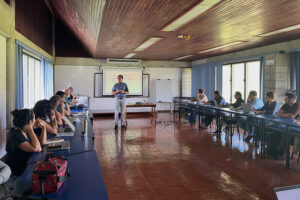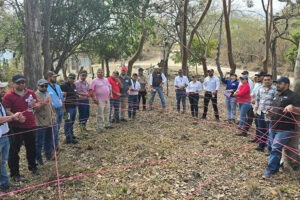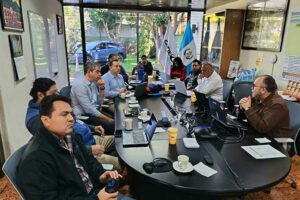Knowledge in Action Fair closes with more than 30 agreements for climate resilience in Central America
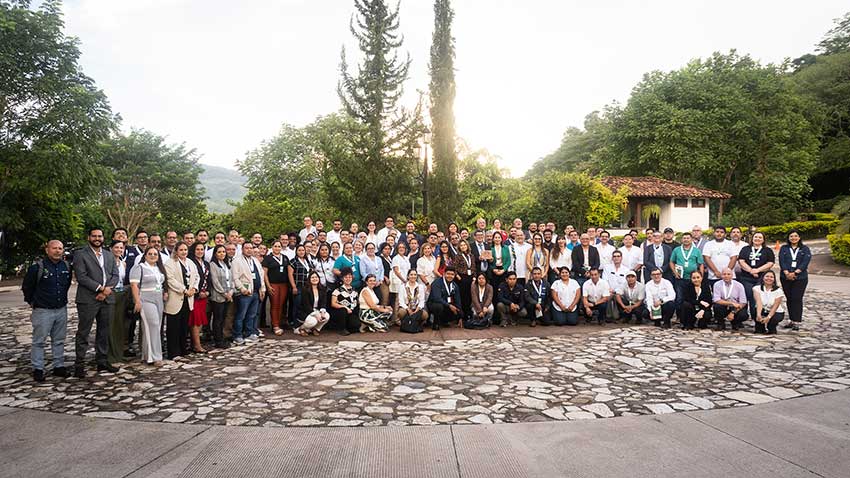
- With more than 250 participants from 70 organizations, the fair was consolidated as a regional space for exchange and alliances
La feria regional Conocimiento en Acción The regional Knowledge in Action Fair concluded after days of intense exchange (September 8 to 10), in Copán Ruinas, Honduras, establishing itself as a strategic space to showcase, share, and scale up solutions that strengthen climate adaptation in the Central American Dry Corridor; one of the most vulnerable regions in the world.
This fair was organized within the framework of the ESCALAR project: Scaling up climate change adaptation solutions for resilience and migration reduction in the Central American Dry Corridor, led by CATIE (Tropical Agricultural Research and Higher Education Center), with the support of Swedish Cooperation, in partnership with the Trinational Commission of the Plan Trifinio (CTPT) and strategic partners such as SE-CAC, the PARES project, the EbA program, FIAES, CABEI, Agropecuaria Popoyán, KfW, and the municipalities of Copán Ruinas and Esquipulas.
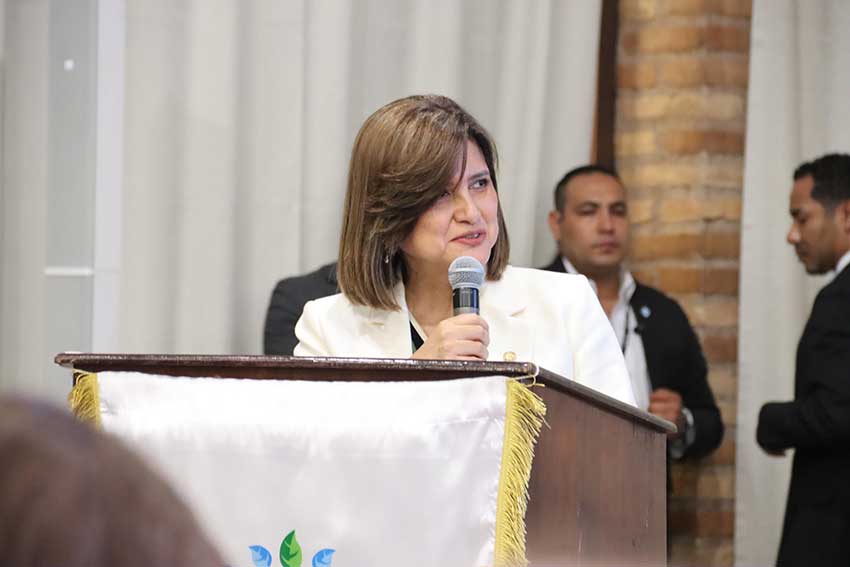
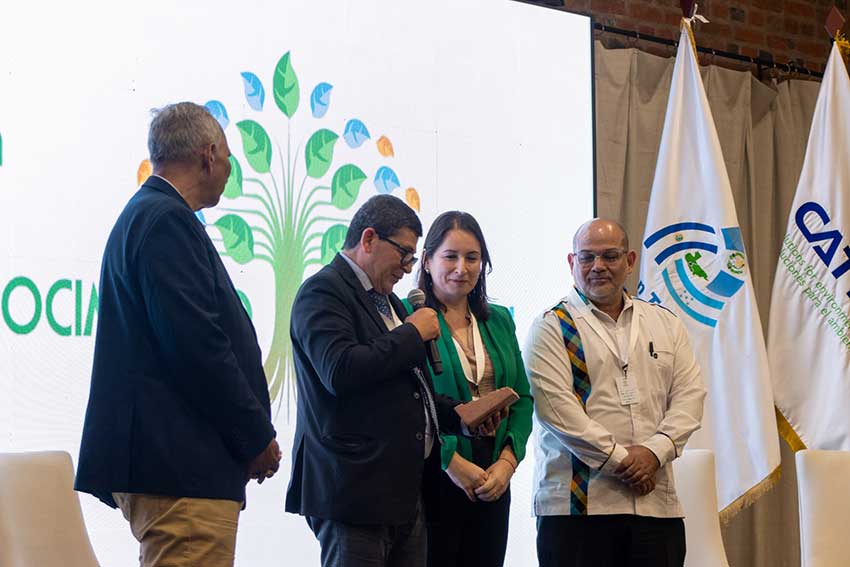
In it, more than 250 stakeholders from 70 organizations – including governments, international cooperation agencies, the private sector, rural youth, producer cooperatives, and academia – followed the “Knowledge Route,” which included 4 keynote lectures, 12 technical panels, and more than 80 adaptation experiences framed in 4 thematic areas: agricultural innovations; rural businesses of women and youth; climate policies and financing; and restoration for adaptation.
The fair reaffirmed that, to achieve a sustainable and prosperous future, it is necessary to build alliances and share knowledge rooted in the territories. As a result of these multi-actor dialogues, more than 30 declarations of interest were signed, aimed at replicating and scaling up the tools, services, and experiences presented during the exhibition.
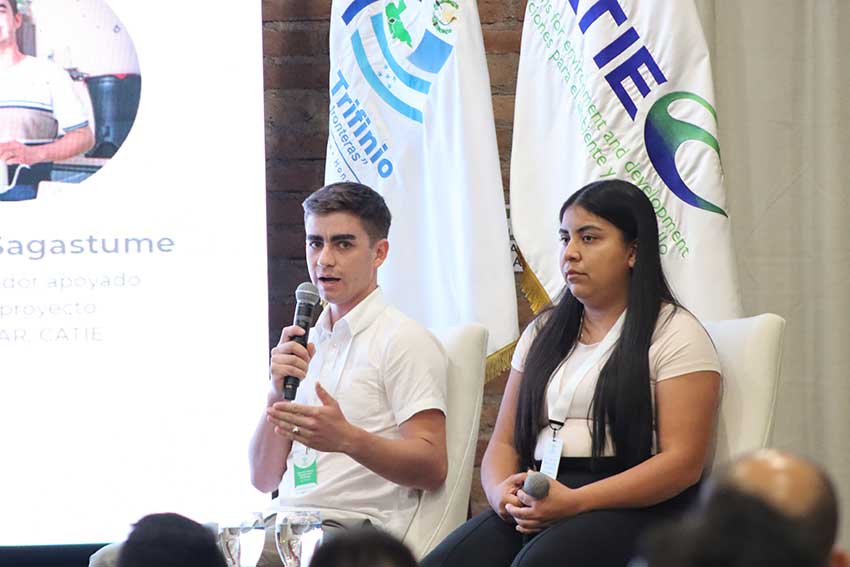
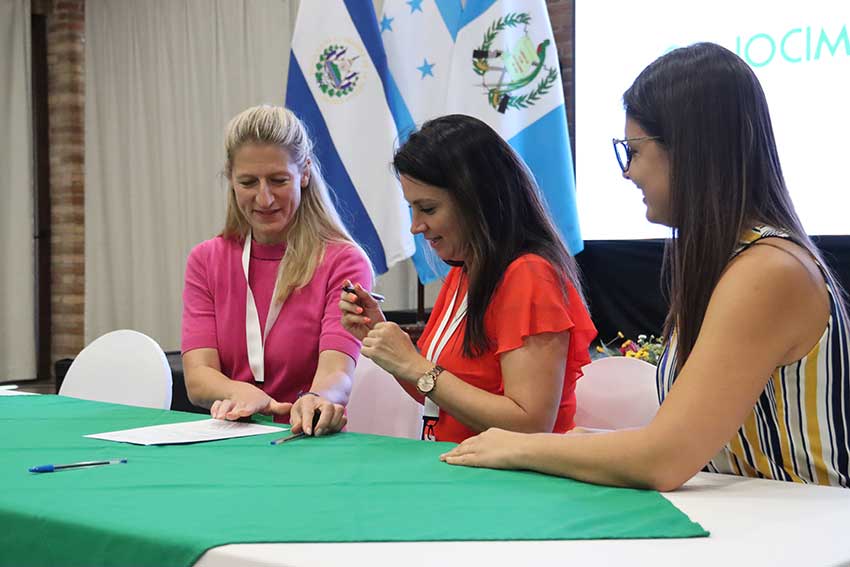
A space for strategic alliances
During the opening, high-level authorities reaffirmed their commitment to regional climate action, highlighting the importance of bringing knowledge and science closer to local territories.
On behalf of Plan Trifinio, Liseth Hernández emphasized the need for inclusive participation:
“We continue to face great challenges in the face of climate change, and that is why we must blend technical knowledge with local knowledge. Science cannot evolve if it does not listen to those who face the challenges of the Central American Dry Corridor every day.”
CATIE’s Director General, Dr. Luis Pocasangre, highlighted:
“This fair is actually a scientific congress, with the particularity that many experiences come from cooperatives and producers. They are concrete products to solve concrete problems, and this space will give us great insights to continue along the path.”
The opening ceremony also featured the participation of Karin Herrera, Vice President of Guatemala; Doris Gutiérrez, Presidential Delegate of Honduras; Karin Metell, Head of Regional Cooperation for Latin America and the Caribbean; Jorge Urbina, Executive Director of the National Plan Trifinio, El Salvador; and Mauricio Arias, Mayor of Copán Ruinas.
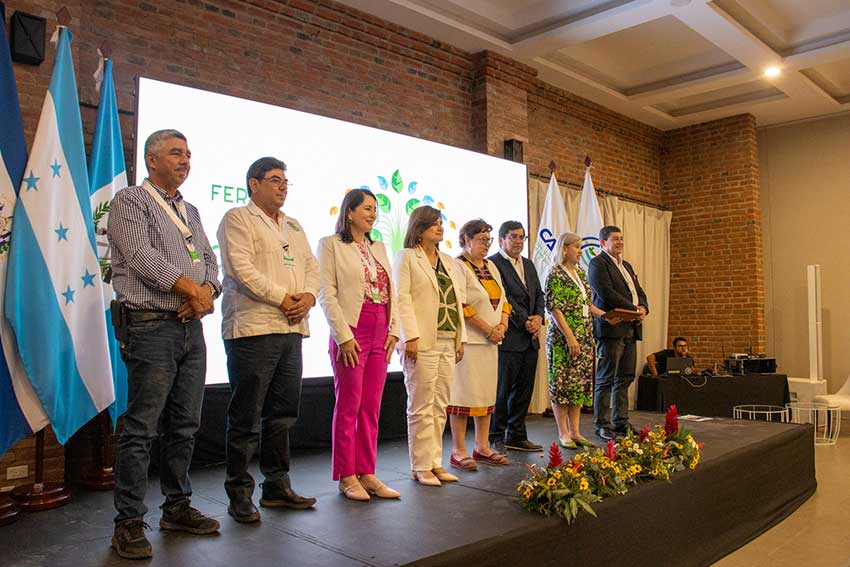
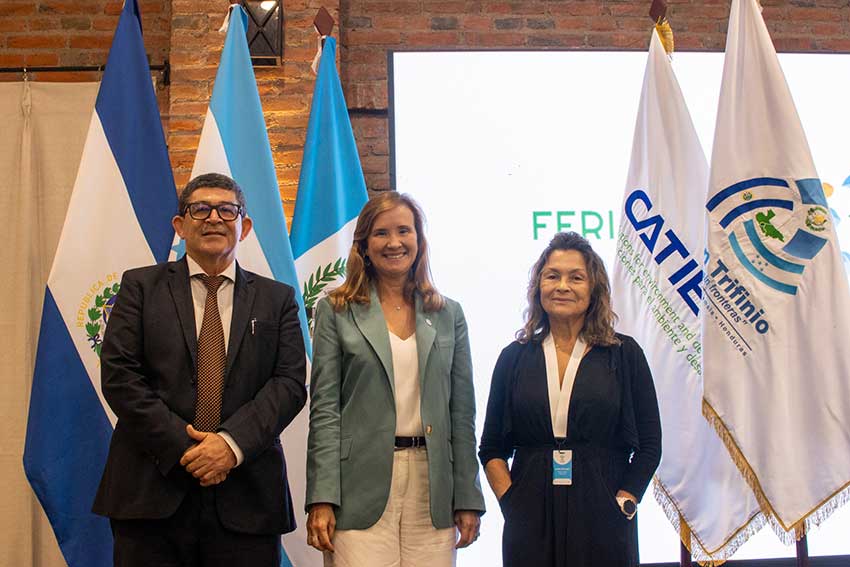
Conferences and panels with a regional vision to guide the dialogue
The keynote lectures marked key milestones of the event.
Gisela Sánchez, Executive President of the Central American Bank for Economic Integration (CABEI), highlighted the challenges of climate financing and resource mobilization:
“We are a region that faces the great impact of climate change and yet we only receive 1.5% of global resources to address it. That is why, for us, it is essential to be able to mobilize resources, knowledge, and human capital that will allow us to continue identifying solutions that can be replicated and extended to all countries that are especially vulnerable to this phenomenon.”
Silja Halle, Director of the Environmental Security Program at UNEP, emphasized how Nature-based Solutions (NbS), in addition to generating environmental benefits:
“They help generate economic opportunities for young people, as a mechanism to reduce organized crime and violence, as well as migration from their territories.”
Jorge Oviedo, Executive Director of the Environmental Investment Fund of El Salvador, addressed the different avenues for financing environmental projects in the region:
“These funds must ensure territorial governance, sustainability criteria, and clear requirements that guarantee that financing reaches the communities and projects on the ground.”
Dina Núñez, co-founder and Vice President of FOMEECARD and Impact Hub Honduras, stressed the importance of supporting and strengthening rural businesses led by women and youth:
“It is an opportunity to innovate, to identify access to resources and not only generate income, but also strengthen resilience and rootedness.”
Muhammad Ibrahim, environmental livestock expert and former Director of CATIE, stated:
“The fair demonstrated that science, technology, and innovation not only show results, they also make visible the processes, objectives, and barriers that we must overcome to transform territories. Now we need to work on designing a new narrative and institutional framework, accompanied by policies that respond to the challenges of peace, security, climate change, and the environment.”
The technical panels reinforced the exchange with central topics such as resilient production, landscape restoration, biodiversity, NbS, scientific innovation, climate financing, and rural businesses.
The fair also featured a central exhibition area of stands and posters, where participants took center stage to share how the tools, experiences, and services presented have been implemented. These innovative solutions included rainwater harvesting systems, bio-inputs, drought-resistant coffee hybrids, community seed banks, and rural business models for women and youth, as well as climate information platforms and community restoration plans.
Inspiring action
One of the highlights of the second day was the signing of a declaration of interest between CATIE and World Vision International, aimed at strengthening joint efforts in restoration and water management in the region.
Jorge Galeano, Director of the World Vision cluster for Central America, emphasized:
“The focus of our efforts must always be on improving the quality of life of our rural communities, and for that, collaboration and coordination among this network of actors is essential.”
The fair marks a starting point towards new horizons, with already proven solutions, a network of committed actors, and the collective determination to drive adaptation and climate resilience in the Central American Dry Corridor.
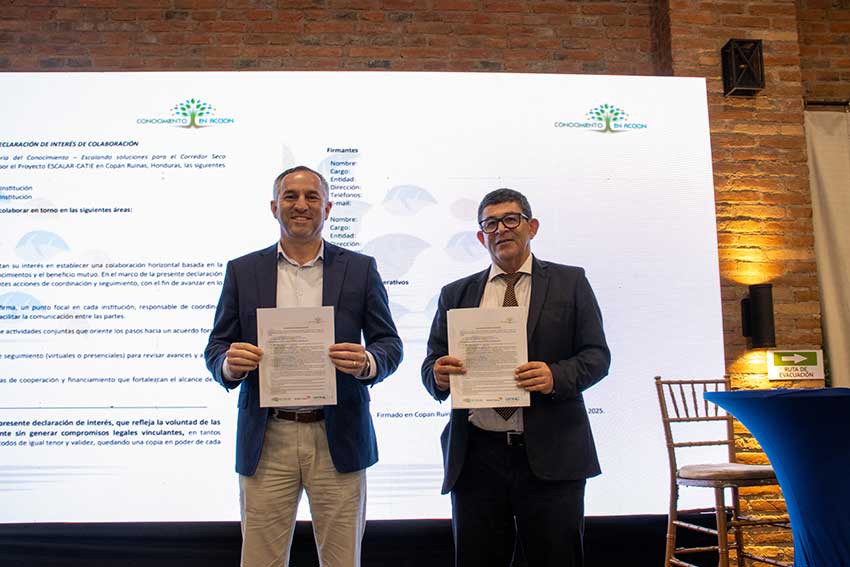
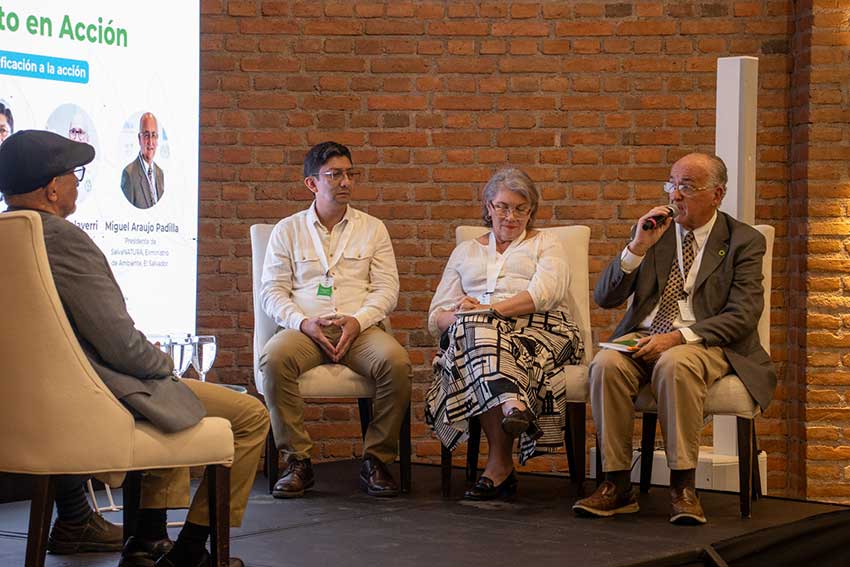
More information/written by:
Arely Valdivia Araica
Communications Specialist
ESCALAR Project
CATIEarely.valdivia@catie.ac.cr
https://escalar.catie.ac.cr/conocimiento/

